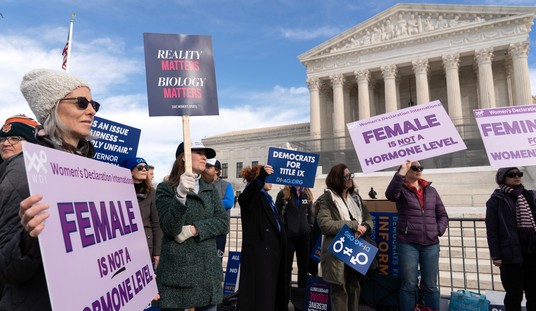As it happens, "likely Republican voters" are almost evenly divided on this question: 38 percent say the Tea Party movement helps Republicans. Conversely, 32 percent say the opposite. Twenty percent are undecided:
While the Republican establishment struggles to beat back Tea Party elements within the party, GOP voters tend to see the grass roots movement as more of a help than a hindrance in the upcoming elections. But it’s close.
The latest Rasmussen Reports national telephone survey finds that 38% of Likely Republican Voters believe the Tea Party will help the Republican Party in election 2014. Thirty-two percent (32%) of GOP voters think the movement will hurt their party instead, while 10% say it will have no impact. Twenty percent (20%) are not sure. (To see survey question wording, click here.)
On the one hand, grassroots conservatives -- or, if you prefer, Tea Partiers -- are an important voting bloc and voice within the Republican Party. (Who else would hold squishy Republicans’ feet to the fire when they betray their principles and vote in lock-step with liberal Democrats?) Democrats, however, would argue that merely the threat of a primary challenger has forced too many Congressional Republicans to take more rigid positions, and therefore opportunities to reach “consensus” and “deals” are harder and harder to come by these days. Hence the Tea Party, in the final analysis, is why we have so much gridlock in Washington. But if Republican candidates continue to run on conservative platforms, only to later betray their constituents after getting elected by them, why shouldn’t they be primaried? The Tea Party holds candidates accountable. Bipartisanship for its own sake is not a virtue.
Recommended
On the other hand, the Tea Party is invariably and derisively mocked by the Left. This is problematic, of course, and almost certainly keeps young people from associating with -- and becoming part of -- the movement. Indeed, when people first inquire about my political leanings, they often ask, as a young Republican, if I associate with the Tea Party. I suppose this is some sort of litmus test to find out just how crazy I am. There can be little doubt, then, that the phrase “Tea Party” itself has been utterly hijacked and stigmatized, which is perhaps why nearly one-third of Republicans believe the Tea Party -- and the movement it engendered -- is toxic.
All in all, however, I happen to agree with Mark Levin and Reince Priebus, both of whom represent two very different but important strains of conservatism within the larger movement: without the Tea Party, the Republican Party would be worse off.
The more vocal and disparate voices within the GOP, the better.

























Join the conversation as a VIP Member